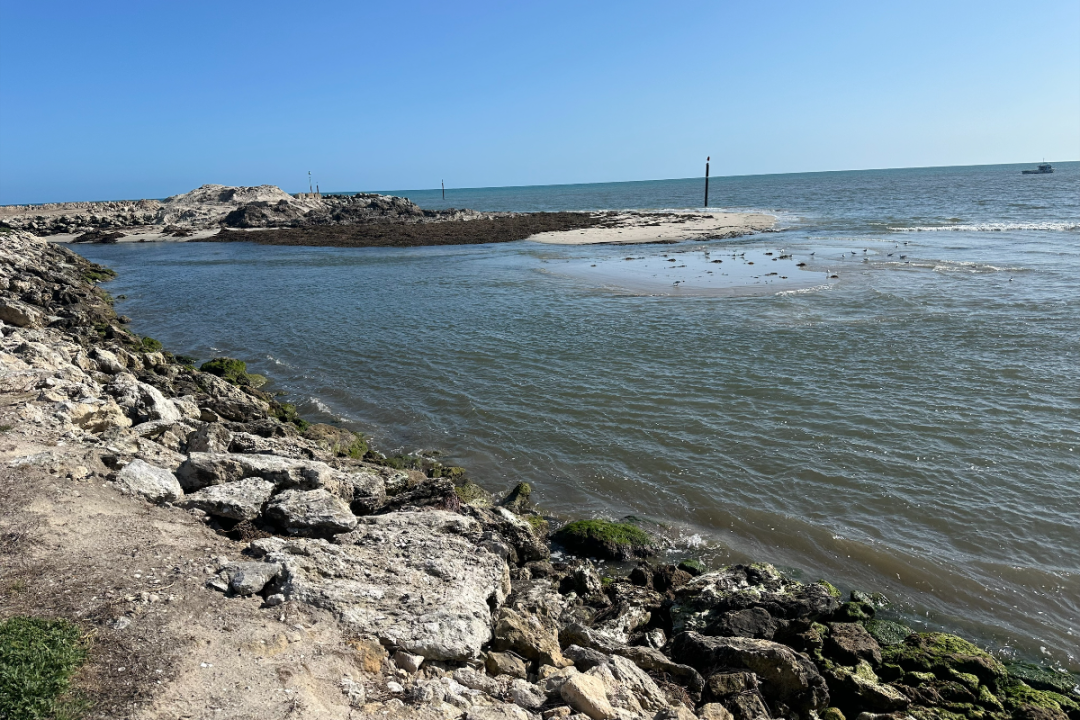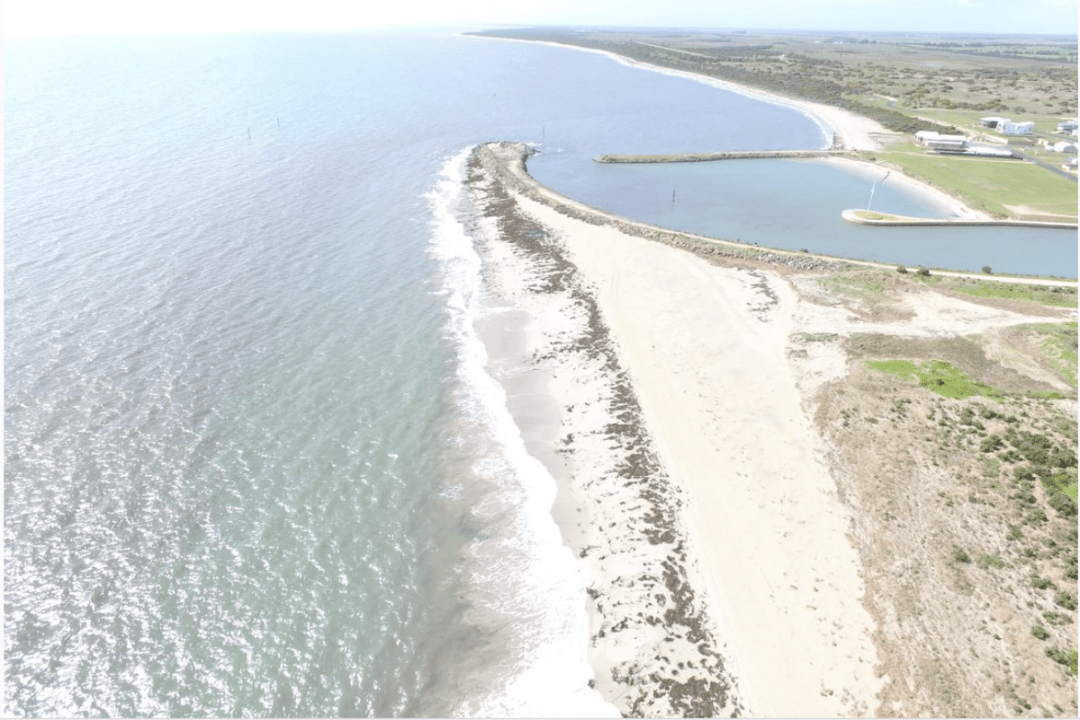Town’s emergency call as marina forced to close
A regional council is calling for state government support after being forced to close its only marina due to continued sand build-up, saying dredging will cost $500,000 only months after spending nearly $1 million to clear the entrance.

The Kingston District Council announced Cape Jaffa Marina would close “for an indefinite period” on October 3, after storms saw sand accumulate to such a degree that vessels could not use the facility.
The council spent close to $1 million earlier this year to move over 74,000 cubic metres of sand and council chief executive Ian Hart told InDaily this was “probably about two or three times the normal sand build-up you get in any one year”.
Following storms in September, Hart said “almost 100,000 cubic metres of sand had come back” to the marina after the council’s earlier dredging efforts.
After writing to Premier Peter Malinauskas to seek emergency assistance, the council announced on October 16 that it would use the remainder of its financial year dredging budget ($520,000) to dredge the marina in hopes of reopening it by the end of November.
Hart said the emergency dredging would not be “a long-term solution”.
“That will only last for a period of time. It could be three months, six months, could be even a year,” he said.
“The problem for our council is they’ve already spent such a large amount of money in a small council’s budget, that we’re not well-equipped to to try and deal with the issue unless we get some external support.
“We don’t want to keep coming back to government year on year. We actually want to resolve it permanently.”

You might like
Hart said “up to 200,000 cubic metres of sand” may have to be moved in a potential future-proofing method, which he said could cost around $2 million.
“We’ve reached out to the state government to say look we’re in trouble, we need support,” he said.
“I know the government have got no magic buckets of money, but I’m making the point through to our local member and to the Deputy Premier and her department, that if we want to get on top of this and do it properly, we need to really tackle this very hard.
“Otherwise we’ll just be spending money every year just to possibly stop it from closing the marina mouth. And you’ll only need one bad storm and that will happen again.”
The Cape Jaffa Marina, or Cape Jaffa Anchorage, was a major development which initially planned “to develop 350 homes” in a private development that received state government major planning status in 2002.
“That hasn’t materialised as yet,” Hart said.
“You can go back a few years and say that maybe the global financial crisis, COVID and a few other things have probably impacted on it, but it’s a long way off achieving its original ambition.
“Council weren’t the ones who actually built it, but council were a willing sort of partner and feeling good about it back in the time because they thought it would create all this new housing development.
“Unfortunately the number of properties that have been sold and constructed there hasn’t met any of the expectations to date, and so there’s not a great revenue source to underwrite some of the amenity activities like dredging.”
Hart said he believed the state government was “obligated” to provide assistance as they had approved the original development.
“They also collect significant licence fees from the commercial fishing industry from those people who have berths there in that marina, running their businesses.
“That money doesn’t come back to council, it goes to the state government. The government’s responsibility is to be a leader supporting communities and all sectors of industry, and this is one of the cases where they need to step up and help us.”
Stay informed, daily

Hart said the issue should be given the same support that natural disasters such as fires and flooding are given.
“If you don’t help us now, we’re forever going to be in a problem,” he said.
“If council is unable to financially cope with it, one day the council may go into administration and it becomes the state government’s problem anyway.
“I’d rather work collaboratively with the state and find a permanent solution to this wicked problem.”
A state government spokesperson said Environment Minister Susan Close had met with the council and “encouraged council to explore long term solutions for managing the issue including with the Commonwealth”.
“Responsibility for ongoing sand management at Cape Jaffa Marina sits with Kingston District Council and has done since it was transferred from the private developer to council some years ago,” they said.
“There is no State Government funding stream to directly deal with dredging private marinas and monies set aside to manage fisheries or to protect coastal habitats cannot be used for these purposes.
“The State Government will continue to assist council where it can as they work to find a solution to the issue.”
Hart said the council had been confident that around $300,000 to $400,000 annually from the council would have been able to cover annual dredging requirements.
“We thought we were ahead of it, and $400,000 in a small budget – that on its own is about eight per cent of rates,” he said.
“It’s a big number. The only number that’s bigger than it is our unsealed road network that supports all of our farming and agricultural sector.”
Hart said the council was awaiting the outcome of a grant application but believed that federal money delivered under Financial Assistance Grants was “too skewed towards the metropolitan areas”.
“It’s partly on a per capita basis, so if you’ve got a small population you’re never going to get enough money to deal with all the issues you have,” he said.
Hart said the council could look at increasing rates in the future, “which will absolutely not be seen positively by our community”.
“But you can’t expect the community to do it on its own, when there’s so many people from around the state who come to enjoy what Kingston and the district and Cape Jaffa has to offer,” he said.








